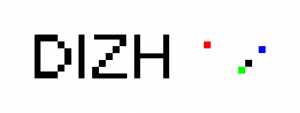 Join the Exchange Day, learn about the digital platform “Thesis Writer” and discuss with Dr. Christian Rapp about the Digitalisation of Academic Writing. March 17 2021 / 12:00 – 13:00 online.
Join the Exchange Day, learn about the digital platform “Thesis Writer” and discuss with Dr. Christian Rapp about the Digitalisation of Academic Writing. March 17 2021 / 12:00 – 13:00 online.
The Exchange Days enable members of the DIZH partner universities and interested parties to meet regularly, present and discuss research results.
On each of the dates, a researcher presents his/her current project to an interdisciplinary audience. You are cordially invited to learn about and exchange information on research projects on topics related to digital transformation during a joint lunch break.
In the spring semester 2021, the events will take place virtually from 12:00 – 13:00.
Please register for the event link via email.
Digitalisation of Academic Writing – the Case of “Thesis Writer” (TW)
Dr. Christian Rapp
ZHAW School of Management and Law
Center for Innovative Teaching and Learning
In this presentation, I will report on an ongoing project called “Thesis Writer” which has created a new working space for dissertation writers that is particularly suited to the situation of BA and MA theses. Born out of practical necessity (supervising roughly 800 BA theses annually within just the Department of Management and Law, ZHAW), work on TW led our working group through a large number of basic issues of digital writing which I will briefly mention. In a short presentation of TW, I will explain its basic technology and the recently created features such as process instruction, genre support, formulation aids like phrase books and corpus queries, and also collaborative features.
The main part of my presentation will be devoted to the question of how research can accompany such developmental work and I will sketch out a mixed-method project (one part of my fellowship) designed to better understand what TW actually does, and how both supervisors and students can make best use of it. Digital platforms like TW are not simply additions to ongoing writing practices, but can change the very nature of writing and its organisational contexts. As an unresolved, open issue I would like to instigate a discussion on what the best strategies are to develop, test, and study these types of Ed-tech tools.